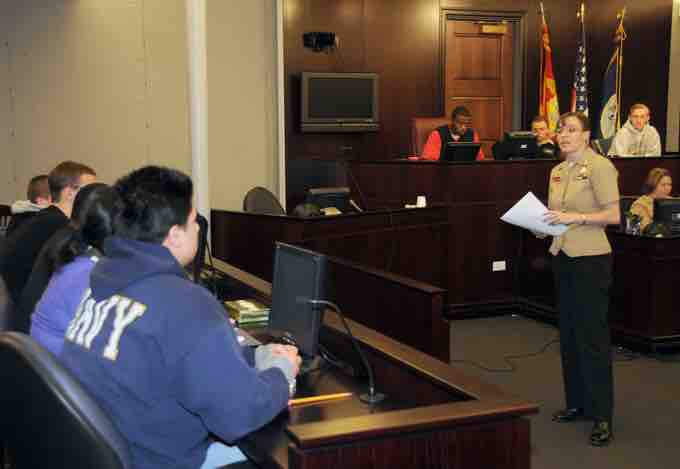Background
The Sixth Amendment (Amendment VI) to the United States Constitution is the part of the United States Bill of Rights, which sets forth rights related to criminal prosecutions. The Supreme Court has applied the protections of this amendment to the states through the Due Process Clause of the Fourteenth Amendment.
The Sixth Amendment states the following: "In all criminal prosecutions, the accused shall enjoy the right to a speedy and public trial, by an impartial jury of the State and district wherein the crime shall have been committed, which district shall have been previously ascertained by law, and to be informed of the nature and cause of the accusation; to be confronted with the witnesses against him; to have compulsory process for obtaining witnesses in his favor, and to have the Assistance of Counsel for his defense."
Impartial Jury
The right to a jury has always depended on the nature of the offense with which the defendant is charged. Petty offenses are those punishable by imprisonment for not more than six months and are not covered by the jury requirement. Even where multiple petty offenses are concerned, the total time of imprisonment possibly exceeding six months, the right to a jury trial does not exist. Also, in the United States, except for serious offenses (such as murder), minors are usually tried in a juvenile court, which lessens the sentence allowed, but forfeits the right to a jury.
Originally, the Supreme Court held that the Sixth Amendment right to a jury trial indicated a right to "a trial by jury as understood and applied at common law, and includes all the essential elements as they were recognized in this country and England when the Constitution was adopted." Therefore, it was held that juries had to be composed of twelve persons and that verdicts had to be unanimous, as was customary in England.
When, under the Fourteenth Amendment, the Supreme Court extended the right to a trial by jury to defendants in state courts, it re-examined some of the standards. It has been held that twelve came to be the number of jurors by "historical accident," and that a jury of six would be sufficient, but anything less would deprive the defendant of a right to trial by jury. Although on the basis of history and precedent the Sixth Amendment mandates unanimity in a federal jury trial, the Supreme Court has ruled that the Due Process Clause of the Fourteenth Amendment, while requiring States to provide jury trials for serious crimes, does not incorporate all the elements of a jury trial within the meaning of the Sixth Amendment and does not require jury unanimity.
Impartiality
The Sixth Amendment requires juries to be impartial. Impartiality has been interpreted as requiring individual jurors to be unbiased. At voir dire, each side may question potential jurors to determine any bias, and challenge them if the same is found; the court determines the validity of these challenges for cause. Defendants may not challenge a conviction on the basis that a challenge for cause was denied incorrectly if they had the opportunity to use peremptory challenges.
Another factor in determining the impartiality of the jury is the nature of the panel from which the jurors are selected. The jury panel must represent a fair cross-section of the community; the defendant may establish that the requirement was violated by showing that the allegedly excluded group is a "distinctive" one in the community, that the representation of such a group in venires is unreasonable and unfair in regard to the number of persons belonging to such a group, and that the under-representation is caused by a systematic exclusion in the selection process. Thus, in Taylor v. Louisiana, 419 U.S. 522 (1975), the Supreme Court invalidated a state law that exempted women who had not made a declaration of willingness to serve from jury service, while not doing the same for men.

The Jury Panel
Great Lakes, Ill. (Dec. 23, 2008) Legalman 1st Class Christie Richardson, a trial services legalman assigned to Region Legal Service Office Midwest makes an opening statement for the prosecution to a jury during a mock trial. Richardson was part of a legal team demonstrating the legal system for 22 Navy Junior Reserve Officers Training Corps (NJROTC) cadets from Chicago-area high schools.